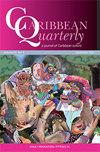Caribbean Repair
Q3 Arts and Humanities
引用次数: 1
Abstract
IN 2013, CARICOM LAUNCHED THE CARICOM REPARATIONS COMMISSION (CRC), comprised of scholars, activists, and government officials from Jamaica, Barbados, St Lucia, Guyana, Suriname, Antigua, St Vincent, and Trinidad and Tobago.1 Members of the commission work with national reparation task forces and committees in the Caribbean and international supporting organisations to enhance their claims. Thus far the CRC has developed a “Ten Point Action Plan”, a public statement that identifies the legacies of slavery and colonialism and makes demands for those European governments that profited from slavery and colonialism to issue an apology and to participate in a reparations programme aimed at enhancing social and economic development in the region.2 Despite the challenges of COVID-19, the CRC has continued their outreach efforts largely through social media. In July 2020 at a press conference, which featured Barbadian prime minister and chair of the prime ministerial subcommittee for reparations, Mia Mottley, CRC chair Sir Hilary Beckles announced the CRC’s proposal for a three-day summit, which would involve the participation of governments, the private sector and the Church of England to discuss how “how to honour this debt to the Caribbean”.3 In this essay, I explore how contemporary claims for reparations in the Caribbean challenge us to think differently about the scope and limitations of certain strands of what Cedric J. Robinson called the black radical tradition.4 Today, reparation activists situate their claims within a genealogy of Caribbean black radical responses, from the Haitian Revolution to the intellectual interventions of Caribbean thinkers and the lived experiences of those impacted by native genocide, chattel slavery and indentureship – Sir Hilary Beckles’s essay “The Reparation Movement: Greatest Political Tide” and Verene A. Shepherd’s and Ahmed Reid’s “Women, Slavery and the Reparation Movement in the Caribbean”5 are such examples. Reading Raymond Williams, Ruth Wilson Gilmore maintains that the black radical tradition is a liminal practice that is defined by a conscious加勒比修复
2013年,加共体成立了加共体赔偿委员会,由来自牙买加、巴巴多斯、圣卢西亚、圭亚那、苏里南、安提瓜、圣文森特和特立尼达和多巴哥的学者、活动家和政府官员组成。到目前为止,儿童权利委员会制定了一项“十点行动计划”,这是一项确定奴隶制和殖民主义遗产的公开声明,并要求那些从奴隶制和殖民中获利的欧洲政府道歉并参与旨在促进该地区社会和经济发展的赔偿方案,儿童权利委员会主要通过社交媒体继续开展外联工作。2020年7月,在巴巴多斯总理兼总理赔偿小组委员会主席Mia Mottley的新闻发布会上,儿童权利委员会主席Hilary Beckles爵士宣布了儿童权利委员会关于举行为期三天的峰会的提议,在这篇文章中,我探讨了当代加勒比地区的赔偿要求如何挑战我们,让我们以不同的方式思考塞德里克·J·罗宾逊所说的黑人激进传统的某些方面的范围和局限性。4今天,赔偿活动家将他们的索赔置于加勒比黑人激进反应的谱系中,从海地革命到加勒比思想家的智力干预,以及那些受到本土种族灭绝、动产奴隶制和契约制影响的人的生活经历——希拉里·贝克尔斯爵士的文章《赔偿运动:最伟大的政治浪潮》和Verene a。Shepherd和Ahmed Reid的《加勒比地区的妇女、奴隶制和赔偿运动》5就是这样的例子。鲁思·威尔逊·吉尔摩在阅读雷蒙德·威廉姆斯时认为,黑人激进传统是一种由有意识的
本文章由计算机程序翻译,如有差异,请以英文原文为准。
求助全文
约1分钟内获得全文
求助全文

 求助内容:
求助内容: 应助结果提醒方式:
应助结果提醒方式:


